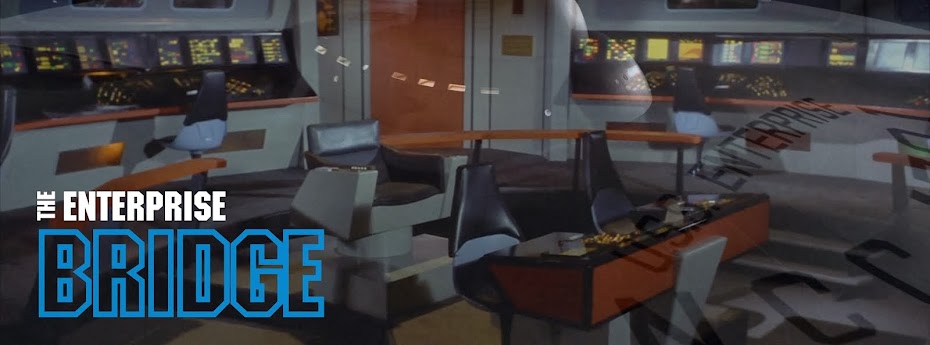 "Space: the final battleground.
"Space: the final battleground. For many years, Starfleet has tried to maintain peace within the United Federation of Planets.
But that alliance has become strained by numerous forces of opposition.
The threat of Armageddon now lurks in every shadow.
These are desperate times.
We are the desperate measure."
With my recent job switch to doing data entry, I now have the need to occupy my mind with something while I stare at multi-colored spreadsheets all day. Besides music, I started listening to several different audio dramas from several different sources, including Darker Projects' Star Trek: The Section 31 Files. I've listened to some early episodes of this program (and its sister show, Lost Frontier) before, but this was my first time listening to it in its entirety. Darker Projects puts out some very nice work (albeit a bit sporadically), and I'd forgotten how engaging and thoroughly enjoyable their stories are.
In The Section 31 Files, "an observer studies a divergent timeline, in which good people become murderous tyrants, people who have died return unexpectedly, and ancient prophecies become fulfilled. The anomalies all center around certain crew members of the Starship Defiant. But who is behind the changes, and why?".
In a frame story of sorts, we follow the main characters aboard the Section 31 vessel Nosferatu, a prototype ship that doesn't officially exist and whose crew operates above Starfleet rules and regulations. Besides following the exploits of the Nosferatu crew, we begin to see the Federation fall apart as dark forces emerge with the intent of conquering the galaxy. The groundwork for the post-apocalyptic future of Lost Frontier is laid.
Like Darker Projects' other audio dramas, Section 31 gives us an interesting look at a side of Star Trek we've never seen before, an organization that does all the 'dirty work' so peace can be maintained in the galaxy. It's a scary thought that such an organization exists even in the Star Trek future, but it's not that far-fetched either. "It's not all 'let's be friends with our alien brethren'. Here the Federation has a dark underbelly and [a] daring crew [to] go where Starfleet fears to tread."
The Section 31 Files is laced with quite a few complex storylines and characters (I hope you like story arcs...), some of which continue on/crossover into Lost Frontier. Besides the excellent scripts, the voice acting is practically professional quality and it's clear the production values are quite high. The program uses a variety of music from different Trek sources (some non-Trek sources as well, listen carefully...) as well as appropriate sound effects (in most cases). The producers also seem to have a soft spot for the Original Series, since elements from TOS appear in a handful of episodes.
Overall, The Section 31 Files is a series well-worth listening to. If you're a fan of audio theatre and think you'd enjoy a bit of a darker look at the Star Trek universe, then check it out. It's just like a good book: you won't want to stop listening till it's over.
Although this program has come to an end, all of the episodes are available for download/streaming on the Darker Projects website. Also feel free to check out Darker Projects' other programs, especially Lost Frontier, which is still currently in production.
http://www.darkerprojects.com/section31.php
Just a note on the order: start with 'Altered Reflection' and work your way down the list. The first few episodes on the page come last and were created in response to JJ Abram's 2009 Star Trek.

